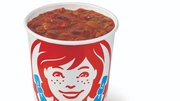Staffing
How to empower employees, lower churn rates in high-turnover industry
Recruitment and retention are still challenging in the restaurant. How can technology help?

June 22, 2023 by Gary Stonell — SVP of Sales and Operations, Opterus
Despite steady employment gains, the restaurant industry continues to face a drastic labor shortage, reporting a reduction in more than 450,000 employees compared to pre-pandemic staffing levels. For quick service restaurants (QSRs), this shortage is compounded by a high churn rate — only 54% of their employees reached 90 days before quitting their job, according to a report by Hourwork.
The restaurant industry has always been known for its high turnover rates, with employees quick to leave positions due to miscommunications with management and poor scheduling. To counter these issues, QSRs must find a way to empower and retain employees, and, oftentimes, that boils down to the manager.
This is why technology has risen to the forefront of the industry. QSRs are looking to streamline employee tasks and unify communications among managers and teams as a means of empowering employees to operate efficiently. Not only can QSRs provide employees with the resources they need to thrive in their roles, thus increasing retention, but they can also improve task management, which ultimately helps the bottom line.
Ensure job expectations are aligned
According to the same study by Hourwork, QSR employees are five times more likely to quit over miscommunications with management during their first 90 days than after. That said, it's no surprise that clear, concise communication — from all levels — is essential in retaining employees.
From the start, managers must relay job expectations with staff and ensure employees know what the duties of their job entail. Doing so allows employees to have complete clarity on their tasks and reduces any confusion about their role. When a manager assigns tasks to their staff, they must ensure that the employee has all the information needed to succeed. For QSRs to provide a consistent experience — such as the familiar phrase that comes after "thank you" at Chick-fil-A — having set responsibilities is necessary to exceed customer expectations and deliver on brand promise.
Centralized communication is key in the workplace; not only do operations run more smoothly, but employees feel more confident in their roles. When employees can easily communicate with managers and have clear expectations for their job, employees are more productive and feel heard and valued. As well, proper communications allow employees to have direct feedback on what they are doing well and areas for improvement, ensuring they not only know how to do their job, but also that they are doing it correctly.
Improve scheduling processes
Many QSRs still rely on outdated whiteboards or binders with shift information, causing employees to text or call their manager for shift updates when they are not physically at work.
With unified communications, both managers and employees can access shift information on their individual mobile device, allowing employees to be more in-the-know about their schedule and making it easy for managers to view and update information. While only managers have the power to change schedules, employees can view their shift hours, request time off or ask co-workers to cover their shifts. Having access to schedule information on their mobile device allows employees to feel empowered and in control of their schedule, and makes it easy for employees to reach managers when changes need to be made.
As well, with visibility into scheduling, managers can ensure they are not over- or under-staffing their QSR. By understanding peak hours and knowing when certain services are more popular — like when the drive thru line and mobile orders are busier than dine-in — managers can allocate the right staff to the right tasks. For example, for the lunch or dinner rush, managers can make sure that enough staff is at the register, bagging orders and calling out customer names or running food to tables and cleaning up after diners. During slower times, managers can assign employees tasks to clean the bathrooms or refill the utensils section, so that when service speeds up, employees are prepared.
Create adequate training and onboarding procedures for all employees
The retail industry is facing a slowdown in hiring, and with the introduction of technology such as QR code ordering, QSRs can operate with fewer staff. However, when operating with a reduced staff, QSRs must ensure that all employees are properly onboarded and trained to meet the demands of the job and the customer. With unified communications, QSRs can ensure that training documents are aligned, onboarding procedures are accurately carried out and new hires have all the resources they need to do their job well.
In addition to ensuring sufficient training for the bottom line, QSRs must ensure managers are also properly trained. A 2022 report from Gallup found that a manager's effect on the workplace can influence team engagement by 70%, meaning positive managers are key to employee morale and retention. Since many managers are also in control of hiring, it's essential for managers to fully understand the ins and the outs of the QSR, ranging from policies and protocols to day-to-day task management.
Boost employee engagement and retention while reducing labor costs
By investing in technology to help optimize tasks and facilitate communication, QSRs can streamline workflows and make operations more efficient. Not only do unified communications help with the business, but effective communications also empower employees and improve engagement. With clear job expectations, centralized shift scheduling and adequate training processes, QSRs can improve the employee experience and boost retention. With happier employees and reduced churn, QSRs can operate more efficiently and productively, increase their capacity for orders and customers, and reduce labor costs by mindfully hiring and training employees.
About Gary Stonell
Gary Stonell, SVP of Sales and Operations, Opterus, has 20 years of sales management and business development experience in CPG and SaaS. Beginning his career in CPG, he worked for Kraft Foods, Philips Electronics, then SunRype Products fostering partnerships with retailers and managing various aspects of the sales and marketing processes. More recently at Sysomos/Meltwater, Gary led the enterprise sales team responsible for managing existing clients and new logo acquisition.
 ChatGPT
ChatGPT Grok
Grok Perplexity
Perplexity Claude
Claude









